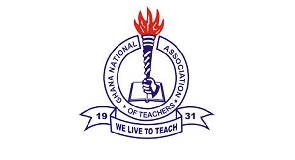To stay relevant in the teaching field, the Ghana National Association of Teachers has encouraged its members to pursue professional development regularly.
According to the association, an uninformed teacher may be doing both themselves and their students a great disservice.
Speaking at the 67th anniversary of GNAT and the Canadian Teachers Federation’s professional collaboration dubbed “NKABOM PROJECT,” Dagbandoh Kwame, Deputy General Secretary GNAT in charge of Education and professional development, urged teachers to always consider how they will grow professionally.
He praised the Canadian Teachers’ Federation (CTF) for its educational collaboration with the Ghana National Association of Teachers (GNAT).
He stated that the CTF had championed numerous training workshops in Ghana with GNAT in order to bring about the necessary change and quality education in the Ghanaian educational sector.
“GNAT believes that the future of the next generation is in the hands of the present crop of teachers. This means that the future of Ghana is in the hands of teachers who play pivotal roles in the development of the nation.
“As a vibrant, resilient, proactive, and result-oriented teacher union in Ghana, we cannot afford to fail the Ghanaian society which has entrusted the future of the country into our hands. We are therefore bent on ensuring quality education for the Ghanaian child,” Mr. Dagbandow said.
“We would want to encourage other stakeholders, especially the government through the Ministry of Education, to provide the districts with resources to emulate our example by helping to train more Teachers,” he added.
GNAT, in collaboration with the Canadian Teachers Federation (CTF), has built the capacity of 99 teachers in the Central Region.
The beneficiaries, 33 males and 66 females, received a week of in-service training to re-equip them to deliver more efficiently in the classroom and improve pupil retention.
The joint project dubbed largely benefits teachers serving in deprived and under-served areas and offered special training to improve their teaching skills and creativity.
The teachers were taken through subject areas such as class management, gender and culture, technology education, and inclusiveness.
The CTF facilitators incorporated their method of teaching into the National Teachers’ Standards which include; teachers’ professional values, attitudes, knowledge, and practices.
Team lead CTF Ms Lynda Grellner, on her part, stated that the overseas projects had become a critical tool to exchange ideas and increase the gain in global education targets.
She asked the teachers to use the new skills acquired to innovate change in the classroom.
General News of Saturday, 22 July 2023
Source: rainbowradioonline.com

















